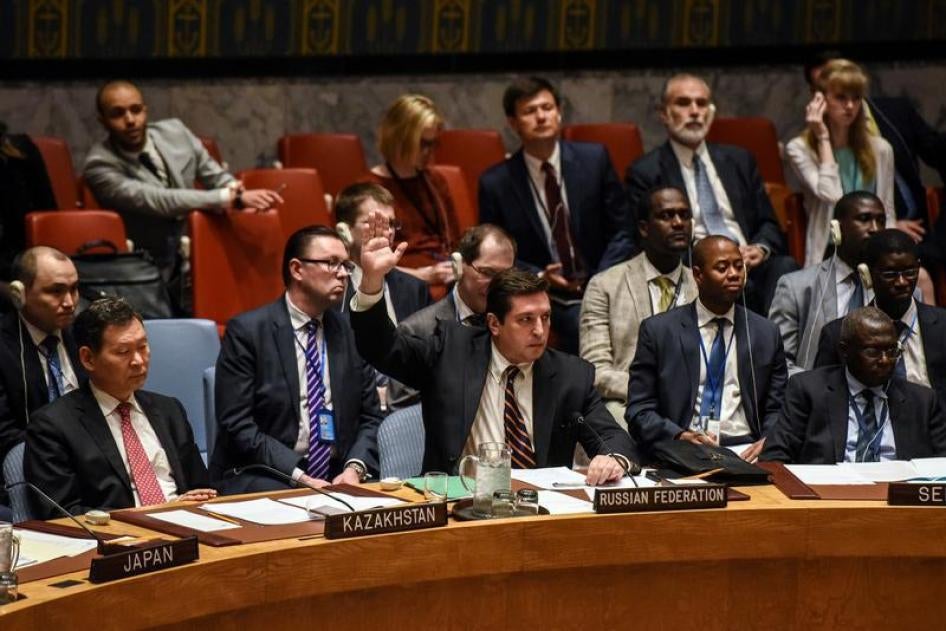On April 12, Russia’s United Nations ambassador raised his hand to mark Moscow’s eighth veto against a resolution aimed at addressing appalling atrocities in Syria. The failed resolution would have condemned the reported use of chemical weapons in southern Idlib on April 4 and demanded that Syrian officials cooperate with an investigation.
European Union states on the Security Council rightly decried Russia’s obstructionism and repeated their calls for justice. But the veto notwithstanding, or maybe even more so because of it, countries on and off the Security Council should take immediate steps to support collection of evidence connected to the April 4 attack and other crimes for use in future criminal prosecutions.
The use of chemical agents and the targeting of hospitals, schools, and civilians in Syria cannot be allowed to become the “new normal.” These are war crimes that should never become accepted weapons of war – not in Syria, not anywhere.
The UN General Assembly took a historic step in December 2016 to establish a new accountability mechanism in the face of Security Council deadlock. The move was aimed at supporting the collection, preservation, and analysis of evidence of crimes committed by all parties to the Syria conflict to be used potentially in future criminal proceedings.
But justice costs money. The new accountability mechanism needs US$13 million to get off the ground, and is dependent on voluntary funding. There is still about a $5 million shortfall. That is inexcusable.
On April 3, EU foreign ministers adopted an “EU strategy on Syria,” pledging “support” to the UN Syria accountability mechanism, stressing “the importance of providing sufficient resources” for “its vital work.”
To keep this promise, and in response to yesterday’s Russian veto, the EU and its member states should immediately fill the $5 million funding gap so the mechanism can be implemented.
A young Syrian man who survived torture at the hands of Syrian President Bashar al-Assad’s security apparatus and who is now pursuing justice for the crimes in Germany recently told me: “Justice is an antidote to continued crimes. It can motivate people not to join armed groups opposing Assad, and it can motivate people to defect Assad’s forces.”
I hope the EU and its 28 member states hear his call and dig into their pockets to get the UN accountability mechanism on its feet. They shouldn’t wait another day to do so.










